 Home > CR Interviews
Home > CR Interviews CR Newsmaker Interview: Gabe Fowler
posted November 4, 2012
CR Newsmaker Interview: Gabe Fowler
posted November 4, 2012

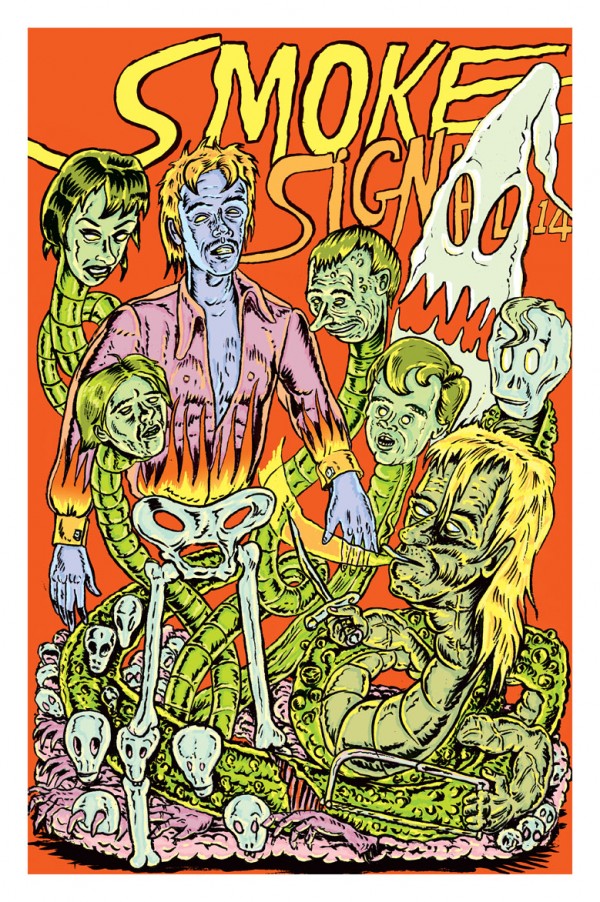
*****
This site doesn't usually run its Newsmaker-style interview on Sundays, but
Gabe Fowler is at the cross-section of enough important stories in comics culture right now to make that seem like a wise thing despite the differences in flow and content with that kind of piece. Fowler is one of
a new generation of comics retailer to exploit a personally endorsed niche within his current market. He's a co-organizer of this week's
Brooklyn Comics And Graphics Festival, a strong entry in the recent wave of small press shows that resemble a European comics festival at least as much as a traditional flea-market driven show. The satellite activities for that event begin tomorrow evening.
Fowler also happens to be one of the new art-comics publishers, having for a while now produced the magazine
Smoke Signal and the occasional stand-alone offering, including
a strong series of prints with Haven Press. Next weekend's BCGF will see Fowler debut a strong slate of titles: Kate Beaton's 72-page
Sketchbook, Olivier Schrauwen's 54-page science fiction comic
Greys, a newspaper tabloid version of Tony Millionaire's
Maakies and a 40-inch print of the James Stokoe Galactus-like space god image that was a mini-sensation on the Internet when it first appeared a while back. There's also a new issue of
Smoke Signal (with comics by David Sandlin, Frederic Fleury and Michael DeForge among others) and the recently-published
Sad Sex from Heather Benjamin should also be available. That's a heck of a week for any publisher going, let alone one on a festival organizer's sleep schedule. I'm grateful he took a few minutes to talk through his current professional outlook, and have placed cover images to his books throughout. -- Tom Spurgeon
*****
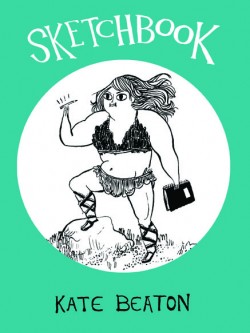 TOM SPURGEON: Tell me about the decision to publish right now, or at least publish in a different way than you have been with
TOM SPURGEON: Tell me about the decision to publish right now, or at least publish in a different way than you have been with Smoke Signal
. Is this kind of publishing -- a more sustained, book-driven effort featuring specific cartoonists -- something you've wanted to do for a while?
GABE FOWLER: Smoke Signal has been a great project with lots of energy, but I'm excited to begin spotlighting individual artists with their own solo publications. The design decisions are somehow more focused when working on a solo book, and it's nice to step up the production quality a bit. I have always dreamed of starting an imprint, the time is right, and I feel I can help artists realize some interesting projects.
SPURGEON: Is there anything you learned while doing Smoke Signal
that you're able to apply to this new venture? I would have to imagine there's a steep learning curve with a first major project like that, and you've done quite a few, actually.
FOWLER: I've learned that I'm a terrible speller. [Spurgeon laughs] Really! It's good to have some fresh eyeballs to look at any project before sending to press, which in my case belong to my long-suffering girlfriend. I've essentially taught myself Indesign along the way, and have gotten a lot better at layout, design, and working with printers and artists. All of these things have a learning curve, but I have an art-making background, so these publishing projects all feel like art projects to me.
SPURGEON: What is the appeal of publishing these books yourself as opposed to editing them for another publisher, say? What is the unique contribution that you make to books like these, do you think, as a publisher?
FOWLER: I've never been invited to edit for another publisher, and I would expect to pay my dues for a while before someone else pays the bill. Working alone gives me all of the burdens and all of the rewards for each project. I get to express myself through the imprint and build a voice through the work I choose to publish. I'm not sure if I have unique contributions beyond my own taste. Because I work directly with the artist, I'm able to complete projects pretty fast. Some projects have gone from concept to printed result in just a few weeks.
Also I'm able to print odd things that other companies would consider financially untenable. Not that I'm making any money!
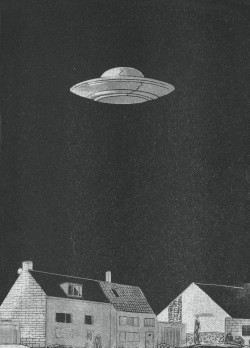 SPURGEON: You've said in a few interviews that you started Desert Island as a corrective in terms of what you wanted from a comics shop that you weren't getting. Can you name something specific that you've been able to do? Is there anything you'd like to do better, something that's maybe been more difficult to provide than you at first thought?
SPURGEON: You've said in a few interviews that you started Desert Island as a corrective in terms of what you wanted from a comics shop that you weren't getting. Can you name something specific that you've been able to do? Is there anything you'd like to do better, something that's maybe been more difficult to provide than you at first thought?
FOWLER: I've been lucky to celebrate the work I enjoy in a quasi-public forum, which is a boon to others who also enjoy it. For years prior to starting the store I worked in art galleries, and I operate the store as if it were a gallery. Each book is an artwork. Because of this attitude and presentation, I've succeeded in crossing some currents between the art world and comic world, which was a main objective of mine from the beginning. Through Desert Island I was able to organize
a kid's comic event at the Whitney Museum, which was more amazing than I could have anticipated. I'd like to work more with established art institutions such as the Whitney to help elevate and promote the work I think is interesting. I also dream of running a slick art gallery in addition to Desert Island, but selling original art has proven harder than I thought.
SPURGEON: Next weekend is the Brooklyn Comics And Graphics Festival, 2012 edition. What's different about BCGF now that you're a few years in? What keeps you specifically interested in what you're trying to do there?
FOWLER: The festival has crazy momentum at this point, which is fantastic to witness. I'm just the guy who nudged the boulder at the top of the mountain, and now it's roaring at full speed with the help of
Dan Nadel and
Bill Kartalopoulos. I spend my entire year working with artists and talking with enthusiasts in my store, and the festival has always been an effort to get them all in the same room at the same time. It's a real mind-blower.
SPURGEON: I was reading our 2009 exchange about the show, and one thing I noticed is that you talked about streamlining the applications process so that no one got hurt. Someone did get hurt this year, or at least enough so that it become known that he had not been invited. Are you totally happy with the applications process; is there ever a way where curating a show doesn't involve someone being hurt?
FOWLER: It would certainly be easier for me if the show was invite-only, as sending rejection letters is my worst nightmare, but the application process gives us the opportunity to discover new artists. We have streamlined the selection process into a democratic one, in which all of the organizers vote to determine the list of exhibitors. It's certainly not personal, but some people will still make a loud noise about our failure to include them.
However, the space is limited and it's important for us to make a well-curated show for the visitors. Well-curated doesn't mean "only the best" -- it means we are striving to present a meaningful combination of exhibitors.
Anyway, I've personally applied for many art-related grants, residencies, and exhibition opportunities -- including many which required paid applications -- and would never make a public show of being refused. That's just me.
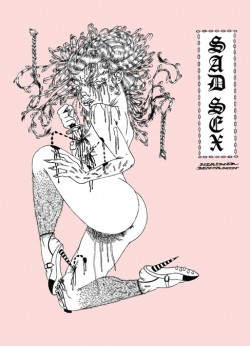 SPURGEON: As someone who publishes, runs retail and organizes a show -- how excited are you in general by the trend towards these small-press, artist-driven shows? Where do you think shows like BCGF fit into the wider picture of how the medium presents itself? Are there dangers in running shows like these, or over-valuing them?
SPURGEON: As someone who publishes, runs retail and organizes a show -- how excited are you in general by the trend towards these small-press, artist-driven shows? Where do you think shows like BCGF fit into the wider picture of how the medium presents itself? Are there dangers in running shows like these, or over-valuing them?
FOWLER: I wish every city had an artist-focused comics show! It's a fun way to expose new readers to the energy happening in comics, which is marginalized if not invisible at shows like
New York Comic Con. My main purpose in running BCGF is to celebrate printed art and the artists themselves. These video-game shows with "comics" in the title are weak and misguided, but it's becoming clear that print itself is driving towards a rarefied and subcultural destination. I'm okay with that, and I'm okay with BCGF representing that subculture.
You asked about dangers in running shows like this; for me, the biggest danger is that the comics-buying public will blow out their budget at the show and skip buying anything at my nearby store. This actually happens for about a week in each direction.
I'm not sure how the show could be over-valued, but I guess anything can be overdone. How about a healthy amount of value -- not too much and not too little? It's definitely valuable to get off the damn internet and spend some time with like-minded people, however you can make that happen.
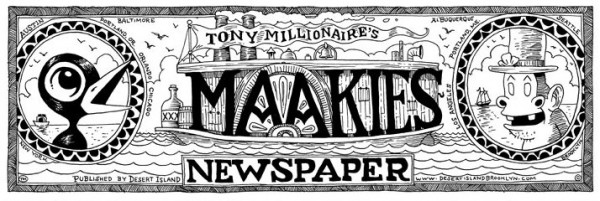 SPURGEON: If you had to name one thing you know you're going to do during the course of Saturday's show -- someone you're going to go meet, something you're going to purchase -- what would that thing be?
SPURGEON: If you had to name one thing you know you're going to do during the course of Saturday's show -- someone you're going to go meet, something you're going to purchase -- what would that thing be?
FOWLER: My biggest goal is to stay mellow and available. That's what the party host is supposed to do! And of course I'm also a fan of the material, so I'll definitely enjoy checking out the many new releases at the show, shaking hands, and thanking people for being there. Just showing up is the most important thing.
*****
*
BCGF
*
Desert Island
*****
* all of these images should be understandable in context; at least I hope so; they were provided by Fowler
*****
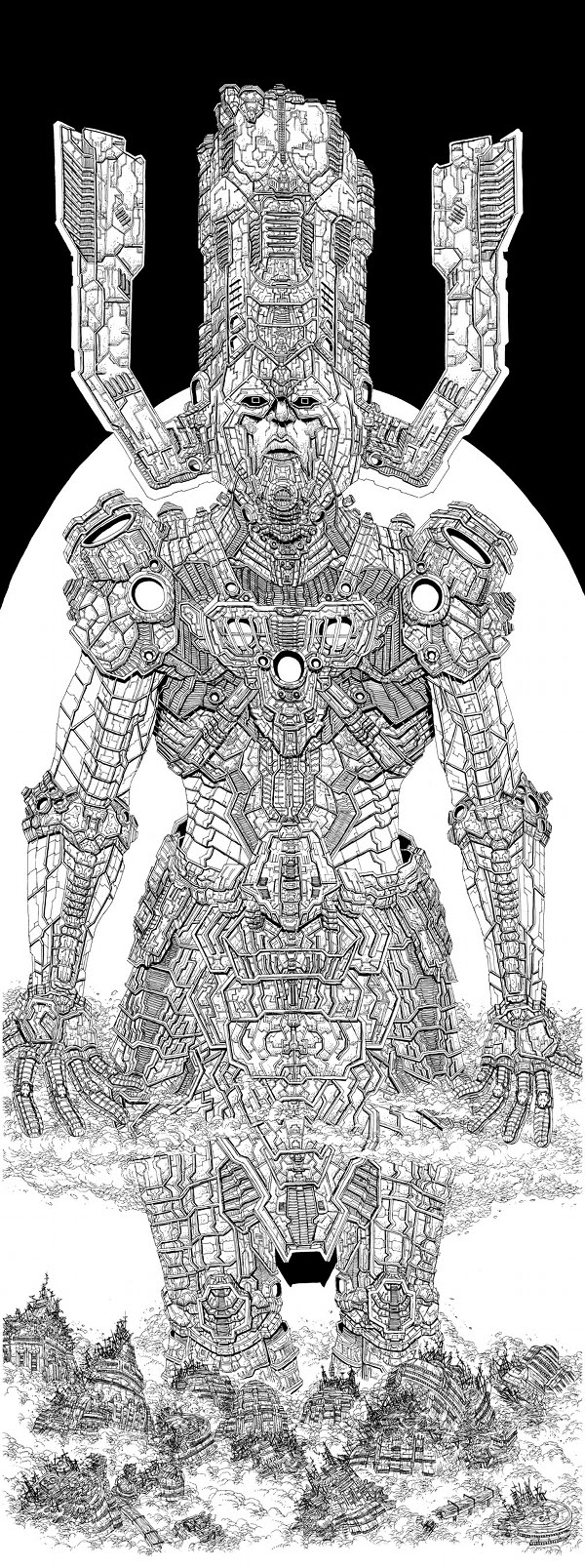
*****
*****


